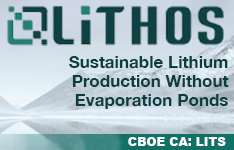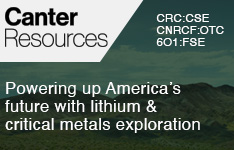The Life Sciences Report: To begin, tell our readers about chimeric antigen receptor (CAR) T-cells and why they are generating so much excitement in the oncology field, particularly among companies targeting hematologic (blood) cancers.
Alan Leong: We're seeing remarkable and well-documented response rates for CAR T-cell therapies. These therapeutics are still in the early stages of their lifecycles, so they are likely to evolve and be refined over the next five to 10 years.
What is amazing is the incredible array of companies developing CAR T- cell therapies. They include Juno Therapeutics (JUNO:NASDAQ), Kite Pharma (KITE:NASDAQ), Bellicum Pharmaceuticals Inc. (BLCM:NASDAQ), Intrexon Corp. (XON:NYSE), bluebird bio Inc. (BLUE:NASDAQ), Celgene Corp. (CELG:NASDAQ), Selexis SA (private) and many others. These companies are very good at stimulating T cells to be highly active cancer cell killers. Each company is trying to develop its own process and targets, but what excites everyone is the chance to target the CD3 receptor to activate T cells.
"RepliCel Life Sciences Inc. is a very provocative, very interesting company."
Activating T cells through the CD3 receptor, however, has drawbacks that may limit CAR T-cell therapeutics to hematologic cancers. Because CD3 activation highly stimulates the T cells, we sometimes see something called cytokine release syndrome. In this syndrome, the body mounts an extreme response, in which T cells target major organs in an autoimmune shutdown. This reaction is potentially fatal, so currently, when the leading CAR T-cell companies enroll patients in a CAR T-cell trial, those patients are put into intensive care wards immediately. Companies are trying to find solutions to minimize that risk. If they succeed, they may be able to target solid tumors.
If I had a caution about CAR T-cell therapy, it would be that the cost is extremely high. To put this in context, Provenge (sipuleucel-T), by Dendreon Corp. (DNDN:NASDAQ), debuted in 2010 at $93,000 ($93K) for a three-infusion regimen, and was criticized for being so expensive. CAR T-cell therapy is much more complex and, therefore, even more expensive. In some cases CAR T-cell therapies also are less homogenous, so there may be substantial batch-to-batch variation.
TLSR: If the CAR T-cell therapeutics are as effective as early results indicate they may be, would their higher costs be worthwhile for payers?
AL: Right now, the actual costs of CAR T-cell therapeutics are somewhat opaque, but people are talking about an initial price of $250K per patient. Some suggest payers will provide reimbursement based on Gilead Sciences Inc.'s (GILD:NASDAQ) Sovaldi (sofosbuvir) experience: A 12-week regimen for that hepatitis C therapeutic costs $84K. I always retort, "Well, if there were three or four Sovaldis out at the same time, would they have paid it?" The answer is no.
"When it goes head-to-head against tenofovir, ContraVir Pharmaceuticals Inc.'s CMX157 is a slam dunk."
I think we'll see some interesting movement over the next year or two as people raise questions regarding the ability to commercialize CAR T-cell therapies. Nonetheless, this is a time to be excited. We're seeing response rates we only dreamed of years ago.
TLSR: Do you see any alternative therapies in development?
AL: We're entering the age of targeted medicines. This is an exciting time. In the past decade Seattle Genetics (SGEN:NASDAQ) brought out Adcetris (brentuximab vedotin), which elicits amazing response rates in lymphomas. Then Medivation Inc. (MDVN:NASDAQ) introduced a prostate cancer medication. Now we have a plethora of targets and technologies.
"Celator Pharmaceuticals Inc.'s acute myeloid leukemia therapy shows superior delivery and uptake by cancer cells."
CAR T-cell therapy is expensive, but many companies are creating bispecific antibodies that may recreate what CAR Ts do at a fraction of the cost. Bispecific antibodies are engineered to go after two or more targets. In their favor, bispecifics are much less expensive and much more standardized than CAR Ts, so they probably don't have to be as effective to be commercially successful. They just have to be effective. Therefore, I raise a caution regarding CAR Ts and bispecifics because they're going after very similar targets. Perhaps both can be successful.
TLSR: Are you seeing any trends among all the companies that have the CAR T-cells out in late-stage research?
AL: On the business side, we're seeing an interesting number of collaborations occurring with one major partner or multiple smaller partners. That's true for bispecifics, too. Juno and bluebird each recently concluded deals with Celgene. So companies are getting support, whether from the equity markets or from partners, to help them reach their next milestones.
That funding is being used primarily to improve their processes. That includes identifying the source of the cells; the most effective methods to condition, transect or modify the cells to become CAR T cells; criteria to select T cells; and the best ways to replicate them in vitro. The methodologies used today will continue to improve.
"Sunesis Pharmaceuticals Inc. was encouraged by European Union regulatory staff to submit for approval of Qinprezo."
Juno has an autologous process, where the blood is taken out of each patient. Other companies are trying to develop allogeneic processes, to eventually make off-the-shelf products viable. The challenge is how to standardize and optimize each process so that it becomes scalable and cost effective.
Scientists throughout the industry also are working to control the dangerous side effect of cytokine release syndrome. Some are inserting a suicide gene so that, within 30 minutes, they can infuse a solution that will kill or deactivate specific CAR T cells. Bellicum is known for that approach, although Juno and others also have CAR T-cell lines that incorporate suicide genes. Companies are trying to find additional methods to inhibit the strength or the application of the CAR T cells in healthy tissue. We're all crossing our fingers.
TLSR: What regulatory challenges do you foresee for this new technology?
AL: CAR T-cell therapeutics will experience issues that are typical to any first-in-class therapy. The FDA must give them an extra look. CAR T-cell therapies are very new and very complicated. As much as we're concerned about evaluating response rates and safety, I'm just as concerned that these therapeutics pass the FDA's manufacturing inspection. This is an issue for any new drug. For CAR Ts the hurdles may be a bit more significant because the manufacturing process is so complex. But these are issues any first-in-class therapy must contend with.
TLSR: Briefly, what makes the process so complex?
AL: For years, there have been many attempts to activate T cells. There was a suspicion that, if we could get the T cells really alive, we would see interesting response rates. The ground is littered with predecessors. Juno, among others, found the right therapeutic package. It stimulated the right molecule and developed the compound in a way that elicited great responses. Really, Juno hit the jackpot.
The CAR T-cell therapy that emerged from that early work is a first-generation, combination gene/cell therapy. It's amazing science, but I often wonder if, 10 years from now, we'll look back and consider it Rube Goldberg science. I hope, in 10 years, that processes will be much more advanced.
TLSR: Tell us about some of the companies you are following.
AL: There are a great number of interesting companies. Some of these are very early stage, but they caught my eye because of what they imply.
I recently looked at Inmedix LLC (private). I'm still analyzing it, but the results of some of its early work are surprisingly robust. There is a whole area of research that looks at the status of a person's autonomic nervous system, which governs involuntary body functions such as breathing, heartbeat and digestion, and determines whether there is variability within that system, or whether the system is heightened. It also considers the status of the sympathetic nervous system, which controls the body's reactions to stress. Some of these things are intuitive. For example, if you think of the "fight or flight response," you can see that the immune system gets upregulated. Those changes trigger other changes in the human body.
"We're seeing remarkable and well-documented response rates for CAR T-cell therapies."
For example, Seattle-area rheumatologist Andrew Holman, M.D., with his associates, studied autoimmune disease to determine whether autonomic status can guide therapeutic decisions. The resulting method enables physicians to prescribe the right drug the first time for 80% of their rheumatoid arthritis patients. Without it, they must try multiple regimens until one works. An 80% hit rate is almost unheard of, so I'd like to see the studies replicated.
The research protocol is straightforward, relying upon one very strong predictive variable rather than many, and the therapy is very simple. It combines the right autoimmune medication with something, like a benzodiazepine, that stabilizes the autonomic nervous system. Earlier versions used a selective beta blocker and saw some very good effects.
Inmedix is a private company at this point, but if its additional data is good, the company may interest very early investors. It's a very interesting play.
TLSR: What about public companies?
AL: I have a number of them. On the regenerative side, RepliCel Life Sciences Inc. (RP:TSX.V; REPCF:OTCQB) and Capricor Therapeutics (CAPR:NASDAQ) are very interesting.
I've been watching the regenerative arena carefully. The interesting thing is the idea that we can rejuvenate parts of the human body or even, perhaps eventually, the entire human body. Most people agree that's a disruptive development and worthy of further development.
Many think regenerative medicine is too early in its lifecycle to seriously be considered as an investment opportunity. But while some applications are in the distant future, others just need refinement. Some regenerative medicine therapeutics, especially those treating major organs or in some of the boutique areas of the sector, are being commercialized now. People, including scientists, who haven't followed regenerative medicine often are surprised at how far some companies have gotten in terms of results, costs and manufacturability.
RepliCel caught my attention because of its hair regeneration or restoration technology. That may not be the application that first goes commercial, but it's interesting, and there's a lot of money in this area. About a year ago, BioWatch asked the former president of a cosmetic therapy professional organization to describe the typical hair replacement procedure. It's incredibly invasive. RepliCel has a way of using dermal-related cells that is far less invasive.
"Many companies are creating bispecific antibodies that may recreate what CAR Ts do at a fraction of the cost."
RepliCel's technology can be used to regenerate hair, and a related technology can be used to repair tendons for patients with tendinitis or major tendon injuries. Interestingly, because of the nature of the cells it is using and its process, cost and scale aren't issues. Other scientists give it a thumbs up, saying the science is good.
The company is currently in a set of Phase 1 and 2 trials for both the hair regeneration and for tendon repair. Early results seem to be very good.
RepliCel is under the radar. It based in Vancouver, British Columbia, and trades off the Canadian exchange and over the counter in the U.S. at very low prices. Keep an eye out for the next set of results and for a move to a major stock exchange. For those who want to get in very early, this is a very provocative, very interesting company.
With regard to Capricor, we recently visited the company's headquarters across from Cedars-Sinai Medical Center in Los Angeles. Capricor is working on allogeneic, off-the-shelf solutions aimed at rejuvenating the heart. The company currently has a major Phase 2 trial in chronic heart failure, and a collection of smaller trials involving Duchenne muscular dystrophy and other aspects of heart failure. The earlier proof-of-concept results are promising, but these trials should nail down proof of concept and potentially set up late-stage programs.
"CAR T-cell therapeutics will experience regulatory issues typical to any first-in-class therapy."
At the same time, Capricor has a high priority on developing its proprietary exosome technology. Exosomes are protein-rich microvesicles secreted by cells. It is a "primitive" method of cell-to-cell communication, but is also apparently robust. You can take the exosomes from damaged, inflamed cells to create problems for nearby healthy cells. The same can be said for deriving the microvesicles from regenerative cells. In animal models, they end up capturing the majority of regenerative goodness. In other words, exosomes produce regenerative effects without stem cells. In theory, this should enable better standardization, distribution, storage and delivery.
The company also has autologous solutions that are further in clinical development, but we have maintained that if an off-the-shelf treatment has anything near the efficacy of an autologous treatment, then it wins.
TLSR: Is there another company you'd like to bring to investors' attention?
AL: ContraVir Pharmaceuticals Inc. (CTRV:NASDAQ) is interesting in that it is oriented differently than it was a year ago. The new CEO, James Sapirstein, has a great background with Gilead Sciences and Serono Laboratories Inc. His executive team also has experience commercializing the type of compounds ContraVir is developing.
This company has two drugs to watch. Its lead drug, FV-100, is an oral nucleoside analog that helps treat pain associated with shingles. As an optimized prodrug, it is more readily absorbed. It is beginning Phase 3 trials this year. FV-100 will be ContraVir's first drug.
This drug is interesting from both business and clinical science perspectives. It has the potential for an accelerated commercialization pathway and is likely to be approved, thus increasing cash flow while ContraVir develops the next item in its pipeline.
"People, including scientists, often are surprised at how far some regenerative medicine companies have gotten in terms of results, costs and manufacturability."
ContraVir's other interesting drug, CMX157, is in Phase 2 trials. It's a more potent formulation of tenofovir, which has a history of great commercial use. This anti-retroviral drug is used to treat symptoms related to hepatitis B and HIV. The new formulation, CMX157, eliminates some of the toxicity and uptake problems associated with tenofovir.
In many ways, when it goes head-to-head against tenofovir, CMX157 is a slam dunk. When it is commercialized, it should return typical branded-pharmaceutical margins. And, importantly, Sapirstein's experience commercializing tenofovir can be applied to CMX157.
TLSR: Can you speak to another company?
AL: Celator Pharmaceuticals Inc. (CPXX:NASDAQ) has done some nice work. The company is using a liposomal version of an already approved, standard combination therapy for treating acute myeloid leukemia (AML): cytabarine + daunorubicin. This provides superior delivery and uptake by the cancer cells. The Phase 2 and 3 results show apparent superiority over standard combination therapy in overall survival and response rate as well. The side-effect profile is similar to—or in a few instances, better than—the standard therapies. Survival data from the current Phase 3 trial should be released in Q1/16.
Celator will be making regulatory submissions with the FDA and the European Medicines Agency in 2016 and 2017, respectively. We estimate peak sales of $175 million ($175M) and, given Celator's current market cap, that caught our attention.
TLSR: Is there another company you find interesting?
AL: Sorrento Therapeutics Inc. (SRNE:NASDAQ) has a wonderful set of cell therapies and monoclonal antibody (mAb) technologies, as well as a large set of collaborations. Typically, mAb companies are trying to acquire one or two specific technologies—either bispecifics as a back-end way to generate the kinds of effects generated by cell therapy, or direct cell therapy to develop CAR-directed natural killer cells. Sorrento is pursuing both strategies.
Compared to other mAb companies, Sorrento has many collaborations in which technologies are being combined to build something completely new. Major collaborators include Advaxis Inc. (ADXS:OTCBB) and NantWorks LLC (private), which was founded by Patrick Soon-Shiong, who developed Abraxane (paclitaxel) and cofounded Abraxis BioScience Inc.
"Researchers are trying to develop better generalized therapies by refining traditional chemotherapies with prodrugs or other repackaging measures."
Recently, Sorrento reported robust results for a drug it had acquired called Cynviloq. It's the next-generation Abraxane and seems likely to be approved. Interestingly, Soon-Shiong and NantWorks companies have purchased the Cynviloq franchise outright for a total value of $1.3 billion ($1.3B). Sorrento received an upfront payment of more than $90M, and is set to receive $1.2B in milestone payments, in addition to transfer payments.
Sorrento also has a collaboration with NantKwest Inc. (NK:NASDAQ), combining some of that company's natural killer cell technology with its own. Some of the early versions of the technology are already in clinical trials. Sorrento plans to launch a variety of CAR T-cell and bispecific therapeutics targeting solid tumors and blood cancers into the clinic in 2016.
TLSR: What do you foresee for acute myeloid leukemia research?
AL: I like to split cancer treatment into two areas: targeted and generalized therapeutics.
There has been an obvious explosion of targeted cancer therapies. It's been wonderful, but it isn't enough. These therapies are called "targeted" for a reason. They hit a small segment of the cancer, and then resistance develops.
There is still a need for a combined, generalized cancer medication. I'm keeping my eye out for cancer medications that can target features of the cancer without actually being targeted medications, and without producing the usual side effects. Researchers are trying to develop better generalized therapies by refining traditional chemotherapies with prodrugs or other repackaging measures. Companies are also trying to reach the 70% of cancers that are beyond targeted medications. Their advances are turning cold tumors hot—making them identifiable to the immune system or to other drugs.
Sunesis Pharmaceuticals Inc. (SNSS:NASDAQ) is one example of a company working effectively in this field. Although the data from its recent trial wasn't optimal, it had some interesting results from a subset of the study. Sunesis recently reported negative results for its lead drug, Qinprezo (vosaroxin), from a Phase 3 trial. The stock trades around $1.15/share, and the company has an $85M market cap. It appears fairly valued and could drift down even further. The FDA will not support a regulatory submission, not without an additional clinical trial.
On the other hand, Sunesis was encouraged by European Union regulatory staff to submit for approval. Qinprezo was effective with a subset of patients, especially those over 60 years old. Although we believe there is considerable risk around using subset results for approval, there was already precedent by the European agency. We will watch for the European Union decision, expected toward the end of 2016. More importantly, that decision will inform us about how the EU handles such trial results.
Keep your eye on Sunesis' response rates in AML. Its medication may have wider applications than some of the other really good AML drugs that are much more targeted.
TLSR: Alan, thank you very much.
Alan Leong is the cofounder and CEO of BioWatch LLC. The company's services and monthly journal, BioWatch News, are for those who invest and have a fascination with seeing what’s next in the biotech industry. It features individual companies and also introduces readers to edgy topics and sectors. Past issues featured alopecia, metabolic syndrome, the future of biotech and pet meds. Before BioWatch, Leong was cofounder of Biotech Stock Research (BSR), a boutique service for life science investors. He published more than 1,500 pages for BSR and wrote more than 45 main feature stories, plus numerous alerts, company updates and annual reviews. Leong has also been an award-winning instructor within the University of Washington system, teaching courses in entrepreneurship, technology forecasting and early-stage investing.
Read what other experts are saying about:
Want to read more Life Sciences Report interviews like this? Sign up for our free e-newsletter, and you'll learn when new articles have been published. To see recent interviews with industry analysts and commentators, visit our Streetwise Interviews page.
DISCLOSURE:
1) Gail Dutton conducted this interview for Streetwise Reports LLC, publisher of The Gold Report, The Energy Report and The Life Sciences Report, and provides services to Streetwise Reports as an independent contractor. She or her family own shares of the following companies mentioned in this interview: None.
2) The following companies mentioned in the interview are sponsors of Streetwise Reports: Sunesis Pharmaceuticals Inc., Celator Pharmaceuticals Inc., ContraVir Pharmaceuticals Inc., RepliCel Life Sciences Inc. The companies mentioned in this interview were not involved in any aspect of the interview preparation or post-interview editing so the expert could speak independently about the sector. Streetwise Reports does not accept stock in exchange for its services.
3) Alan Leong: I own, or my family owns, shares of the following companies mentioned in this interview: Sorrento Therapeutics Inc., Capricor Therapeutics, RepliCel Life Sciences Inc., Seattle Genetics, ContraVir Phamaceuticals Inc., NantKwest Inc. I will often enter a tiny token investment into a company that is being screened. I may maintain that token amount for quite some time. I developed this habit in my early days to "encourage" me to keep researching companies. In this case of this interview, I am maintaining a token investment, and so the reader should not infer that stock ownership is an endorsement. I personally am, or my family is, paid by the following companies mentioned in this interview: None. My company has a financial relationship with the following companies mentioned in this interview: None. I was not paid by Streetwise Reports for participating in this interview. Comments and opinions expressed are my own comments and opinions. I determined and had final say over which companies would be included in the interview based on my research, understanding of the sector and interview theme. I had the opportunity to review the interview for accuracy as of the date of the interview and am responsible for the content of the interview.
4) Interviews are edited for clarity. Streetwise Reports does not make editorial comments or change experts' statements without their consent.
5) The interview does not constitute investment advice. Each reader is encouraged to consult with his or her individual financial professional and any action a reader takes as a result of information presented here is his or her own responsibility. By opening this page, each reader accepts and agrees to Streetwise Reports' terms of use and full legal disclaimer.
6) From time to time, Streetwise Reports LLC and its directors, officers, employees or members of their families, as well as persons interviewed for articles and interviews on the site, may have a long or short position in securities mentioned. Directors, officers, employees or members of their families are prohibited from making purchases and/or sales of those securities in the open market or otherwise during the up-to-four-week interval from the time of the interview until after it publishes.





































